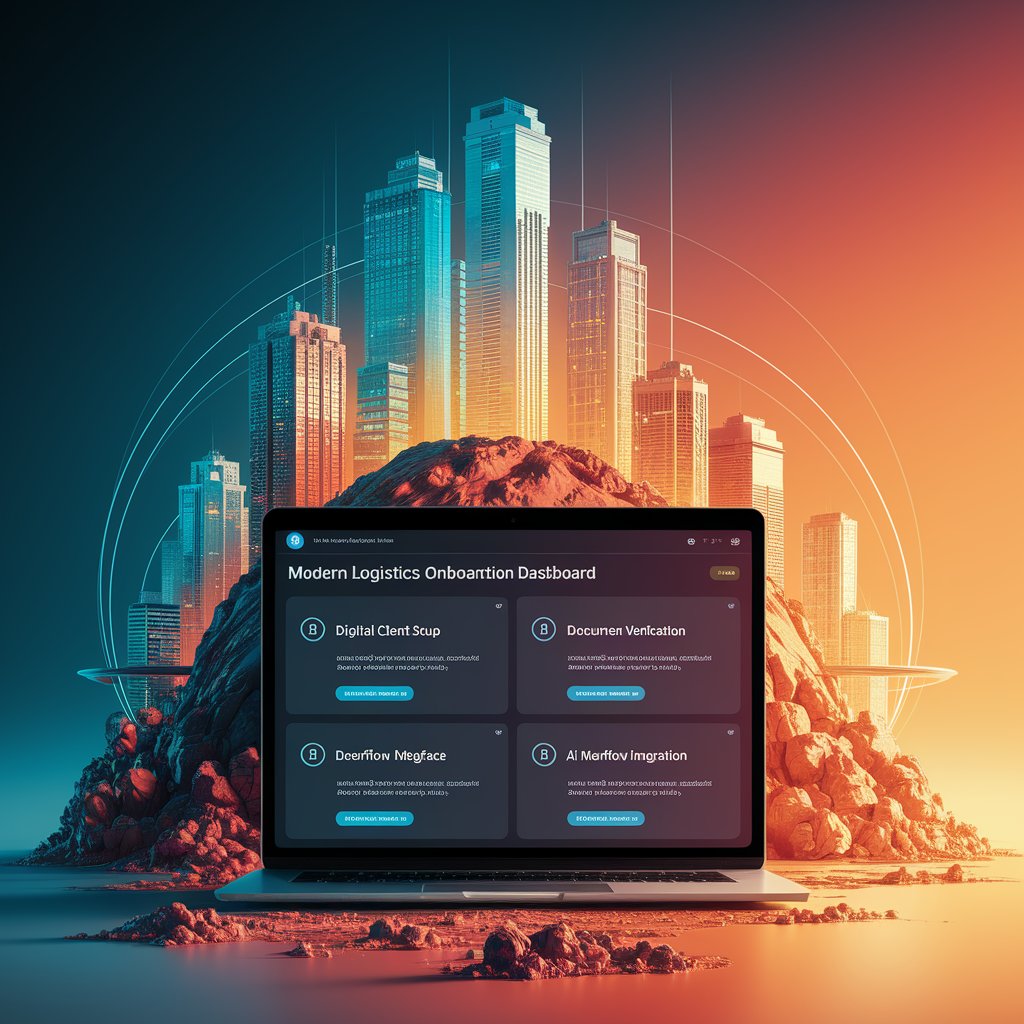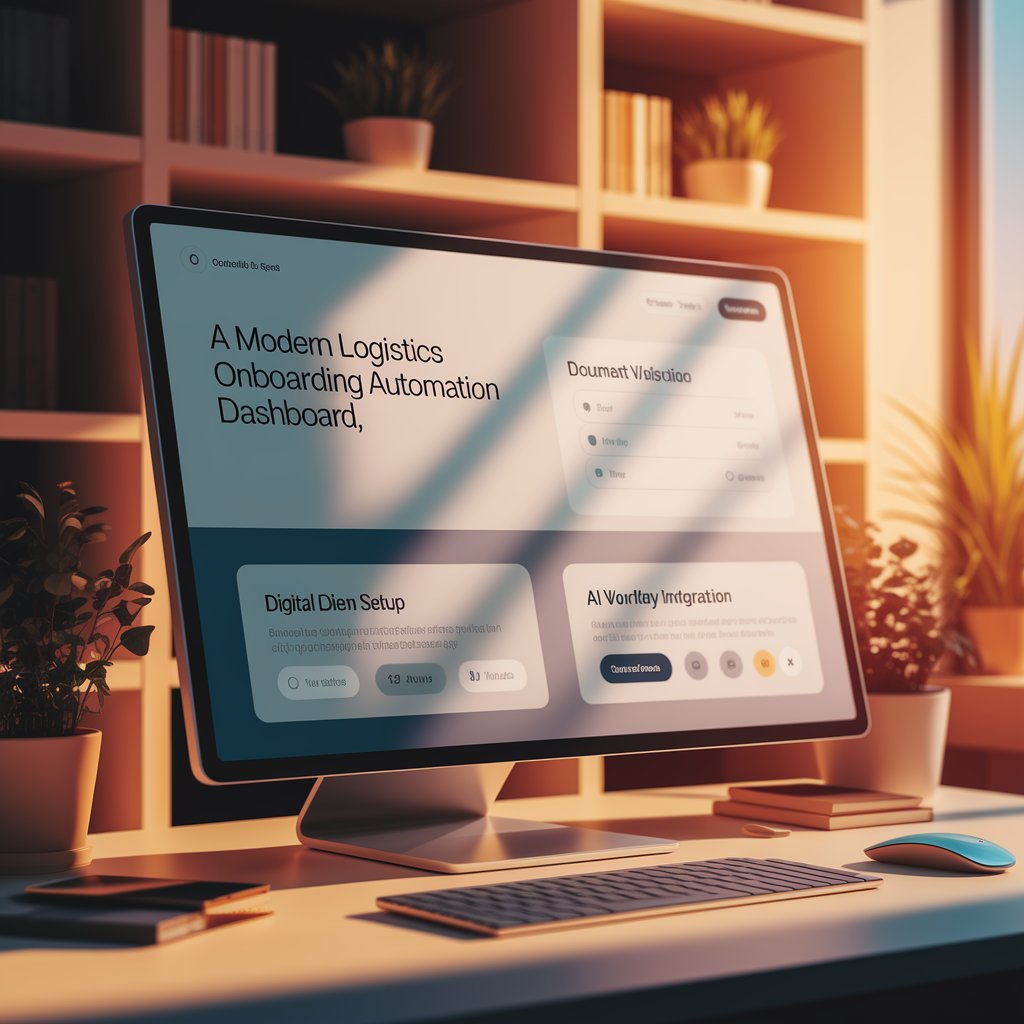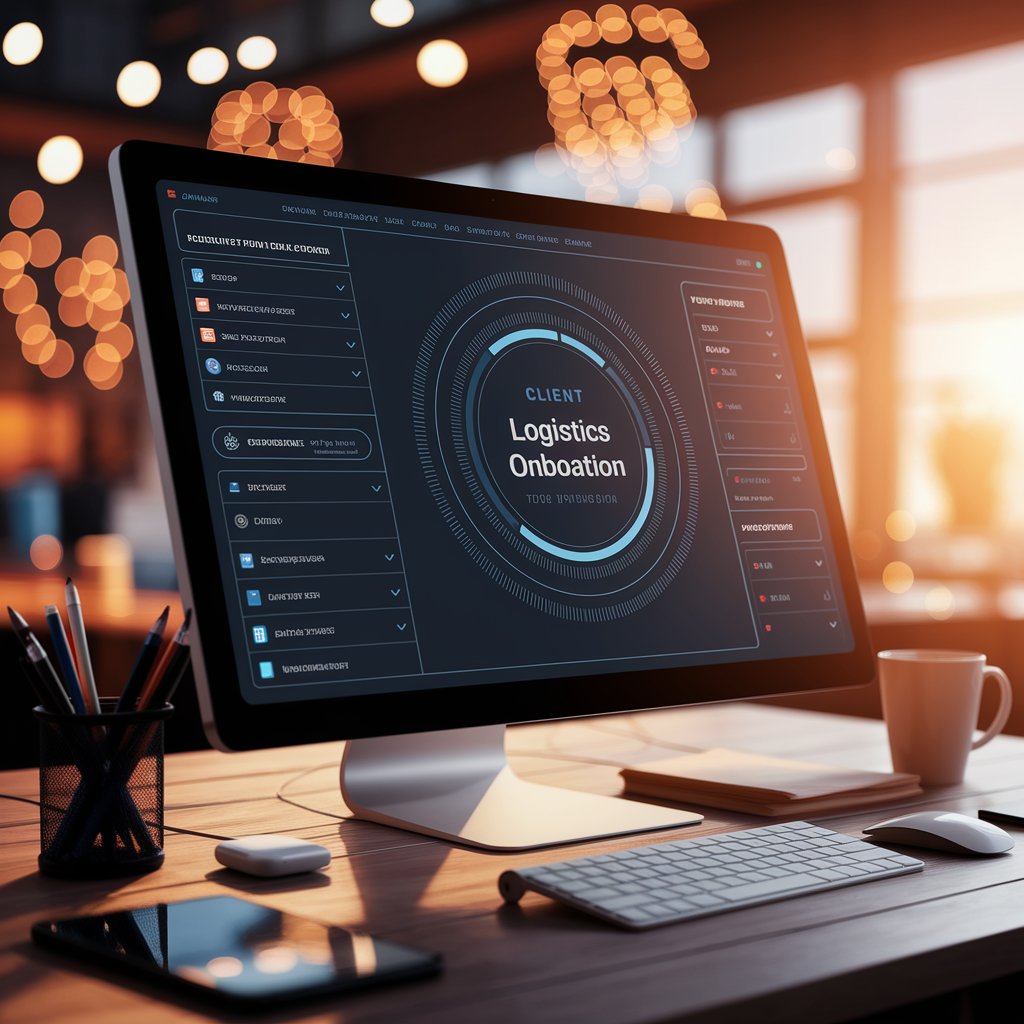Freight Onboarding Automation: Accelerating Client Integration in Logistics

Introduction
Freight onboarding automation transforms this process. By leveraging AI-driven workflows and integrated digital platforms, logistics companies can onboard new clients in hours instead of days. Automated tools handle everything from gathering business details and verifying compliance documents to setting up accounts, connecting APIs, and assigning operational workflows — creating a seamless start for both the customer and the operations team.
What Is Freight Onboarding Automation?
Freight onboarding automation is the use of software and AI tools to streamline the client onboarding process in logistics. These solutions can:
- Collect and verify client details automatically
- Digitize and process compliance documentation
- Connect customer systems with TMS, WMS, and carrier APIs
- Automate training material delivery for new users
- Create automated operational workflows for immediate use

Key Benefits for Logistics Companies
Benefit | Impact |
Faster Time-to-Value | Start handling shipments sooner |
Reduced Manual Errors | Minimize data entry mistakes |
Enhanced Client Experience | Smooth and professional onboarding |
Cost Efficiency | Lower administrative workload |
Scalable Growth | Handle more new clients without hiring more staff |
How It Works
A typical freight onboarding automation process includes:
- Digital Intake Form: Client completes an online form with key details.
- Automated Verification: System checks for compliance and documentation.
- System Integration: API connections to carriers, customs, and other services are established automatically.
- User Access Creation: Accounts, permissions, and portals are set up instantly.
- Automated Training: Clients receive guided tutorials and operational workflows.

Advanced Use Cases
Freight onboarding automation can also support:
- Multi-Language Onboarding for international clients
- Custom Workflow Templates based on industry type (e.g., pharma, e-commerce)
- AI Compliance Prediction for high-risk shipments
- Automated SLA Tracking from day one
Why It Matters for Freight Forwarders
In today’s competitive logistics market, speed and efficiency are critical to winning and retaining clients. Freight onboarding automation enables companies to cut lead times, reduce human error, and present a highly professional image from the very first interaction — setting the stage for long-term partnerships.

Conclusion
Freight onboarding automation empowers logistics providers to integrate new clients quickly, accurately, and cost-effectively. By replacing slow manual processes with intelligent workflows, freight forwarders can deliver better customer experiences, reduce operational strain, and scale with confidence. In an industry where every day counts, automated onboarding is the foundation for future growth.
